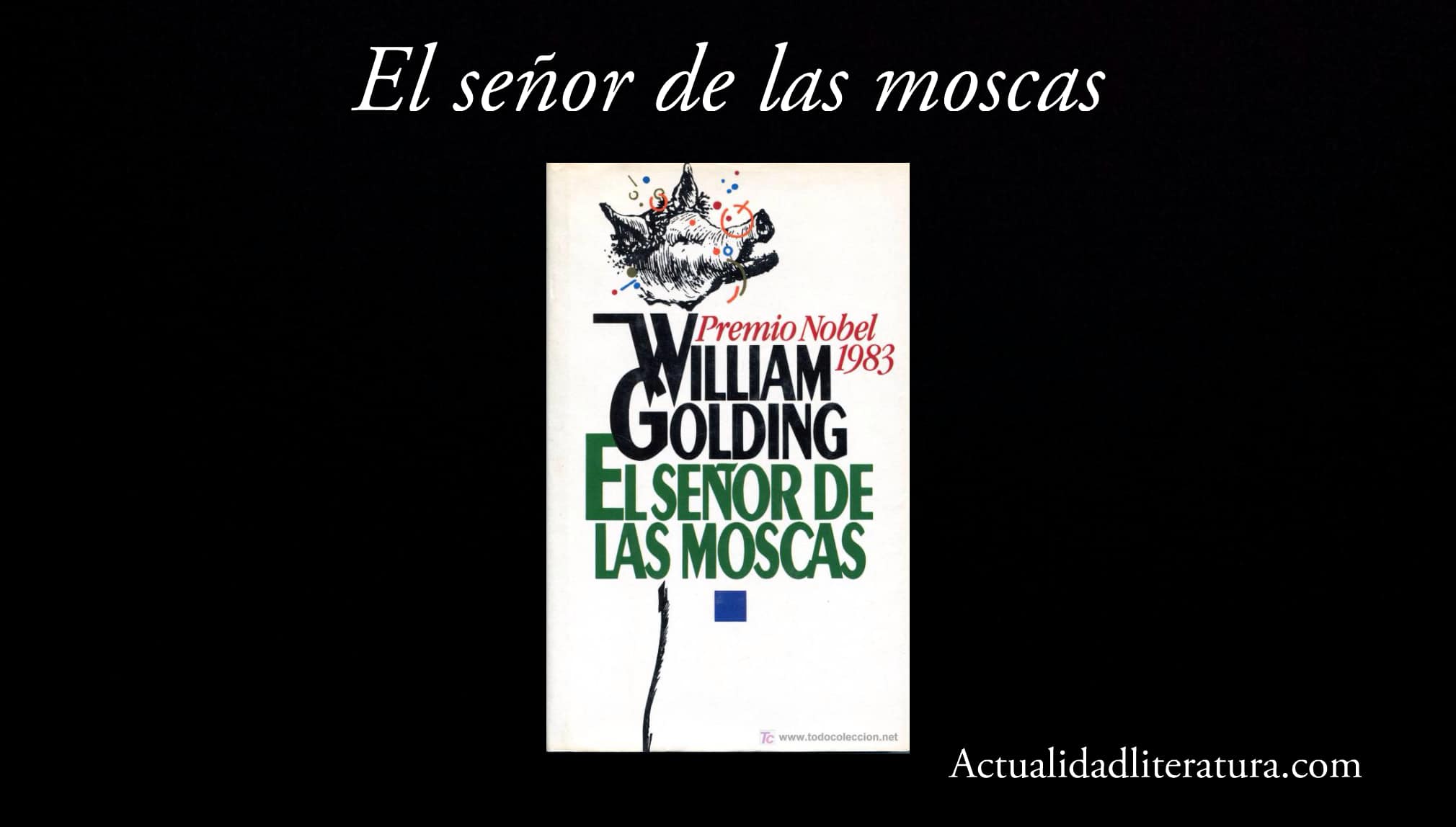
William Golding.
Lord of the Flies is the acclaimed debut novel by British author William Golding. Published in 1954, a lord of the flies (original name in English) is considered to him like a classic of the Anglo-Saxon Literature of the postwar period. However, for the first few years after its launch it had very modest commercial numbers.
Since the 1960s it has become an indispensable reading in colleges and universities in the United Kingdom and the United States. The title refers to human malevolence embodied in Beelzebub, a Philistine icon (later incorporated into Christianity) whose nickname is "the lord of the flies."
About the Author
Birth, childhood and youth
On September 19, 1911, William Gerald Golding saw the light for the first time. According to the portal Biographies and Lives, Saint Columb Minor was his birthplace. It is a small village located on the north coast of Cornwall, England, United Kingdom. From an early age he received a very solid education, mainly oriented towards humanism and literature.
Additionally, His parents, Alec (who was a science teacher) and Mildred (a leading advocate for the female vote) greatly influenced rational and sensible thinking. of young William. On the other hand, it was marked especially by the works of William Shakespeare and Alfred Tennyson. Not surprisingly, his first publication, (poems, 1934) is a collection of poems.
Before and after World War II
He studied natural science (later switched to English literature) at Brasenose College, Oxford. Later, he worked as a teacher in the mid-30s at the Michael Hall Institute in London. In 1937 he returned to Oxford to complete his doctorate and two years later he married Ann Brookfield, with whom he had two children, David and Judith Diana.
In 1940 he enlisted in the British Royal Navy. Among the most notable campaigns in which he participated are the persecution and destruction of the Bismarck Germanic, as well as the Normandy landing. After the war ended, William Golding was able to devote his time entirely to literature.
El Sir de the flies

Lord of the Flies.
You can buy the book here: Lord of the Flies
Initially, this novel was to be published under the title of Strangers from Within (Strangers from the inside). But, after being discarded by various publishers, it finally appeared in 1954 as Lord of the Flies. Today it is considered one of the most sublime allegories in contemporary literature.
The book describes the transition of young students from an initial naive and innocent state to the manifestation of a Machiavellian evil. Where infants are forming a society under their own rules that leads to a despotic community, governed by the law of the strongest.
The inherent darkness of the human being
Later Golding Posts -The heirs (1955) Cathedral (1964) and Rites of passage (1980), among others— followed the line drawn by lord of the flies. In them the analysis of the lowest and vilest feelings of the human being is evidenced.
Legacy
Due to its transcendental theme - attractive to people of all ages - it received multiple awards in life. Although undoubtedly the two most prominent are el Literature Nobel (1983) and the title of Sir (1988) awarded by Queen Elizabeth II of England. William Golding died on June 19, 1993, in Perranarworthal, UK
The list of his works is completed by:
- Martin the castaway (Pincher Martin, 1956). Story.
- The Brass Butterfly (1958). Theatrical work.
- Freefall (Freefall, 1959). Novel.
- Hot doors (The hot gates, 1965). Essay collection.
- The piramid (pyramid, 1967). Novel.
- The scorpion god (Scorpion God, 1971). Novel.
- Visible darkness (Darkness Visible, 1979). Novel.
- A Moving Target (1982). Essay collection.
- Paper men (The Paper Men, 1984). Novel.
- Egyptian diary (An Egyptian Journal, 1985). Novel.
- To the Ends of the Earth (novel trilogy):
- Rites of passage (Rites of Passage.
- Body to body (Close Quarters.
- Fire in the bowels (Fire Down Below.
- The hidden tongue (The Double Tongue, nineteen ninety six). Posthumous novel.
Analysis of Lord of the Flies
Plot and themes
Lord of the Flies is an allegorical novel about the conflict between civilization and the inherent savagery of every human being. In the same way, the author argues that societies arose as a mere consequence of man's wickedness and his need to dominate.
Under these premises, Golding takes a group of school children who make an emergency landing on an island in 1945. When infants notice the absence of adults, they organize to agree on their own rules of coexistence. So, they make up two groups: the little ones or "the masses" (carefree, complaining and mischievous) and the older ones (the ringleaders).
Rationalism and religion
The plot of Lord of the Flies perfectly envelops the complexities of rationalism and the human intellect. In this sense, one of its most emblematic characters is Piggy. Who, despite his hesitant attitude and submissive look, always tries to convince his friend of the things that he could achieve for them if they listen to their own minds.

Quote by William Golding.
Likewise, man's behavior from the perspective of religious precepts is a frequent questioning in all of Golding's work. To do this, he uses characters such as Simón (one of the protagonists of the novel), who embodies goodness and holiness. In contrast, the British author describes other characters with really sinister motivations and behaviors.
Synopsis
The focus of events falls on the group of older children. Among them, Ralf acts as "chief", for which, he sounds a snail shell to summon the rest of the infants. Likewise, Simon is seen as a slightly weird wimp, as well as Piggy is despised for being chubby and his persistent demeanor.
On the other hand, Jack is the most violent character, he groups together "dissidents" who do not agree with Ralf's ideas. The latter believes more in making strategies focused on getting a rescue for everyone (like a bonfire on the top of the mountain, for example). Instead, Jack advocates the creation of a "tribe", expert in gathering, hunting and survival tactics.
The match
The fight between the two sympathetic factions — Ralf versus Jack — is inevitable. In the midst of the fights, noble characters like Simon and Piggy are killed, while other more violent (Robert, for example) show all their perversion. Eventually, Ralf is desperately forced to flee (threatened with death) until all the children are rescued.
I have heard many wonderful things about this book, I have never dared to read it although I know that it belongs to a range of cult works of Anglo-Saxon literature. The synopsis is very attractive, I think I will decide to read it.
-Gustavo Woltmann.